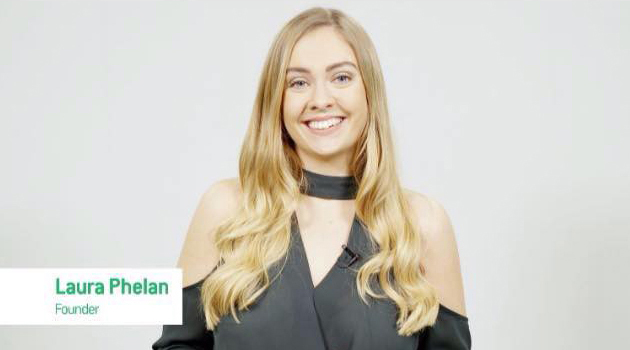Laura Phelan, founder of Phelan Well and a member of our young people’s steering group, talks about being diagnosed with an eating disorder at an early age, her experiences of care in London and her personal road to recovery.
My name is Laura, I’m twenty-four and I run a wellness and fitness business to improve mental health and confidence among women. I also mentor young people at Beat.
Beat is the UK’s leading eating disorder charity. I have been volunteering with them for just over two years now and I have loved every minute of it. They support people like me who’ve been affected by eating disorders or have difficulties with food, weight and shape.
The onset of my eating disorder began at the age of thirteen when I was diagnosed with Anorexia Nervosa. I cannot pick out a single trigger that sparked my eating disorder, but I do remember having low self-esteem and always putting pressure on myself to do well from a young age.
Around October 2009, I began a healthy eating and exercise regime and initially it was harmless. I never intended to lose weight, but soon I obsessively exercised and restricted my food. I soon became withdrawn, tired and all consumed by my eating disorder. By the time my fourteenth birthday came around that summer, I had reached my lowest weight (5 stones 13 lbs) and had hit rock bottom.
My mum took me to numerous doctor appointments where I was weighed time and time again. After many months of follow up appointments where I was asked to ‘eat a little more’. They decided to admit me to the Child and Adolescent Mental Health Services (CAHMS). There I began a course of family therapy.
The family therapy focused on issues with my parents, but as they had been divorced since I was a baby — I did not find this especially useful.
By this point, I had become socially withdrawn from my friends — seeing them less and less. My family were often angry or upset not knowing how they could help me and often wondering why I could not just ‘eat’.
At one point as it drew near to my annual summer holiday to Ireland, the doctor told my mum and me that I would be sectioned and not allowed to travel, if I could not put on at least a kilo in weight.
It was a shock to hear. I was so desperate not to be hospitalised that I told myself I’d do what the doctor ordered, but would carry on my ‘anorexic lifestyle’ once I got to Ireland.
Luckily this changed, a few weeks into the holiday. I finally admitted to myself that I had a problem. I realised that the thought of letting go of my anorexic lifestyle was even more terrifying than dying. I had to choose between accepting the help that was on offer and getting better or essentially to starve myself to death.
After spending time with my grandparents and little cousins who became so greatly affected by my illness, I decided I wanted to get better and slowly began my road to recovery.
When I returned from Ireland, I felt very unsettled again and found it difficult to stick to the recovery path. Fortunately, shortly after my return, I started cognitive behavioural therapy (CBT), which helped me face the everyday challenges that recovery posed and my therapist offered me extra support along the way.
I often found the therapy uncomfortable and demanding due to the regular weigh-ins and tasks such as buying food by myself again and eating with other people, but I realise now I needed to become comfortable with these everyday tasks to be able to achieve a normal relationship between myself and food.
I had many ups and downs in the first few weeks of my recovery trying to battle with the overwhelming guilt of eating small meals, re-introducing food groups and eating with other people. Slowly this got easier, and with the patience and support of my family and friends, I forced myself to keep going.
So, now I am nine years in recovery, and I would say every year since the onset of my eating disorder was a different part of my recovery process. University posed challenges of work pressure, social occasions, alcohol, relationships and new levels of responsibility, all which were in some way affected by my eating disorder, thoughts of self-loathing, negative thinking and irrational thoughts.
I had family deaths and final exams and bills to pay all of which made me more ‘vulnerable’ to relapse but also made me a stronger person who found other ways to deal with problems. By the end of University, I had started my first long-term relationship, began planning a trip around the world. I feel more confident about things and I am more outgoing, independent and happy.
To learn more about Laura’s recovery visit: phelanwell.com or follow her on Instagram: phelanwell24
About the author
Laura Phelan is a Wellness Coach and founder of Phelan Well. Since her astounding recovery from Anorexia she now specialises in eating disorder recovery, active living, empowering people to look after their wellbeing as a whole, feel confident and love themselves inside and out.
She has qualified as an advanced Boxing Fitness trainer from the Hatton Academy, is an Ambassador for B-eat, the UK’s leading eating disorder charity, a Mental Health trainer for Mind and is completing a diploma in Practitioner Skills and Nutritional Interventions from the National Centre Of Eating Disorders.
Laura founded Phelan Well and her team of resident experts to bring you the whole wellbeing experience so you can have a transformation in mind and body.
For more information about our currnet Children & Young People’s mental health work, click here.

